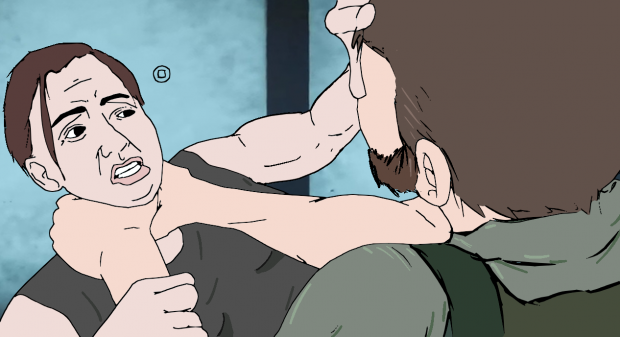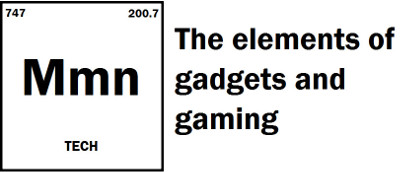

The Last of Us, shader stutter, and the rotting fungus of bad PC ports
When you’re paying upwards of $70 nowadays for a game, you’d expect that it should just work. Yet more and more PC games coming out show that the increasing costs to consumers are not invested better quality control.
This week, Sony released their hotly anticipated PC remake of 2013 mega hit The Last of Us. And well, this dog was not also naughty, he left his game looking like a dog’s breakfast. Large numbers of players have been reporting frequent crashes to desktop, hard locks, glitches with models and textures, abnormally long times to compile shaders, as well as abnormally high CPU and VRAM usage. The game was also virtually unplayable on the Steam Deck, despite Naughty Dog CEO Neil Druckmann claiming in December that Valve’s popular handheld would be supported.
Naughty Dog has responded to complaints by saying “our team is working hard to resolve issues currently preventing some of you from experiencing the game to ensure it reaches the quality level you expect and deserve.” ‘Some’ might be a bit of an understatement. The only people who don’t seem to be having issues are those lucky enough to have top end hardware that can brute force its way past the game’s broken code.
Some players have taken to blaming Iron Galaxy, the studio who ported the game to PC, and the same studio who also did the infamous Arkham Knight port back in 2015. Though it’s unclear just how much of a role they took, or why Naughty Dog and Sony Interactive Entertainment still chose to greenlight its release in this state, even after it had already been delayed.
The Last of Us Part 1 has since received a patch addressing some issues. However, reviews on Steam still sit as “mixed”, with Valve reportedly offering refunds to customers regardless of hours played.
The reason The Last of Us stands out is because Sony has had a fairly good reputation with their PC ports of PlayStation exclusives. At least up until now, they’ve been the gold standard for how to do console ports correctly. So to release such a high profile title in such a sloppy state is utterly baffling. However, this is certainly far from an isolated incident.
If you ask any PC gamer lately, games being released on the platform have been getting worse and worse. TLOU is probably the most glaring example in recent years. Perhaps only preceded by the disasterous launch of Cyberpunk 2077. But many games are not running as well as they should on the platform. A platform which generally targets an enthusiast audience that cares about performance.
Typically, we see this every new console generation, once the multi-gen ports start wrapping up and there’s a transition to a new set of tools. The biggest problem being “shader stutter”, which is caused by DX12 and Vulkan handing off processing work from the graphics driver to the game engine. Something which was intended to speed up performance, but has had the opposite effect. Perhaps I’ll go into that specific issue in more detail in a separate post. Though I think it’s really the key to the problem. More coding work is being passed off from hardware makers onto game developers.
This might be a somewhat controversial opinion, but I just don’t think today’s modern game devs really know how to code. Or at least well enough to optimize increasingly complex titles. PC is a difficult beast to wrangle. That’s definitely a factor in what makes porting games to the platform so challenging. Even if consoles use very similar hardware, there’s still fewer variables to deal with in this case. But the fact that these games are running poorly, or just outright broken, on all configurations is really telling regarding the level of skill today’s developer possesses. And how that’s getting worse, since earlier DX12 and Vulkan titles running on idTech or the Foundation engine didn’t have these issues. I can also go on about the industry’s overreliance on Unreal Engine, which makes for some very pretty, but poorly running games. But again, that’s a whole separate post in and of itself.
This coding problem is furthermore being juxtaposed with an industry that’s increasingly comfortable with allowing the public to beta test their products. Either through Early Access programs or simply by pushing incomplete games at full retail prices. Which to further emphasize were increased to $70 specifically because studios claimed was due to rising development costs. Unfortunately for consumers, that extra $10 a pop hasn’t resulted in games being more polished. So it begs the question, just where the heck is all the money going? Certainly not in making good PC ports. Heck, they struggle to get the console versions working half the time.
Which brings us to the consumer side of the problem. I’ve been gaming for 30 years now, and I still don’t understand the mindset of a lot of gamers. With digital distribution, there is zero advantage to buying a game right at launch. You’re paying the highest price now, for what’s ultimately going to be the worst state the game is in. Or you can take the r/patientgamer route, buy the same game six months to a year later, patched and hopefully working as intended, on sale at a significantly lower price. So you can still enjoy the titles you’re hyped up for, without any of the problems, and the developer gets deterred from putting out a shoddy product at launch. It really is the most sensible choice. Basically, this behaviour isn’t going to end unless gamers stop supporting it financially.


